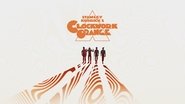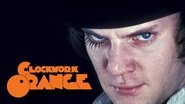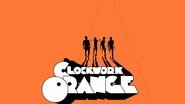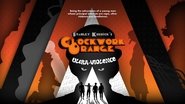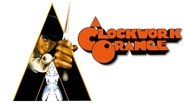yeral yeral (ismetyeral)
Filmin is the narrator Alex from the beginning to the end. That's why she's seen the audience in the eyes of Alex, who portrays a ruthless, sarcastic, uncommon, offensive, destructive portrait of society's values.Alex DeLarge, who is an antique hero, and his friends are terrorizing the city with a tendency of violence overflowing with the gang they have established. They include milk and drug mix drinks that make violent tendencies in Korova , aged assailants enter the house of a writer named Alexander and injure him and rape the author's wife. Leadership conflicts, which are increasingly intensifying within the gang, end with Alex's friends falling into a trap and going to jail, and things develop.Aside from the violence in prison, Alex behaves obediently, takes care of religion and acquires the priestess sympatia in prison (but identifies himself with the Roman soldiers who tortured him, not Jesus, while reading the Bible).Alex is chosen as a guinea pig for the "Criminals, Reconciliation and Recruiting" program, which the political party at the head of the country uses to win elections. Alex will be released if the program is successful. The minister gives him political advantage by using Alex to show how he cleans the streets from the blame.
Throughout the program, Alex hands out war and Nazi genocide images in the form of hands, with arms tied, arms wide open, accompanied by Beethoven's 9th symphony. That Beethoven is a unique asset that reflects the only beautiful thing in Alex, that he respects and values. As a matter of fact, Alex's Beethoven busts and drawings in the prison room used Beethoven's music during the Ludovico session, which the minister had not missed. At the end of all this, Alex can not think of applying violence and sexuality. Alex's acts of violence are tried to be prevented by ludovico, a violent action. Alex is released when the program is successful.
When Alex returns home, he sees his family rent a room. His family did not want him, he stayed on the street. The drunk beggar, who had previously been beaten with his gang friends, lynched himself to other beggars and lynched himself. The cops who came to Alex's call for help are his gang friends. Alex is also beating them because their friends are producing violence as police this time. Alex, who managed to get rid of his friends, continues his misfortunes and finds himself at the writer's house he raped his wife. The writer, who does not recognize Alex at first, welcomes him well. But then the writer, who understands who Alex is, takes his wife's revenge by listening to Beethoven, who is conditioned to react to Alex. Alex, who can not tolerate the pain he suffocates, throws himself out of the window and commits suicide.At this point, we need a psychoanalytic termination to better analyze Alex and the society he lives in. The concept that can be brought against crime and punishment in psychoanalysis is ressentiment. Here, in order for ressentiment to be able to be found, a situation of impotence must occur as Alex has experienced. Alex, a man who does not obey / submissive to a repressive social control, resorting to destruction in the name of self-emancipation. So the problem of being present at the root of Alex's violence lies. In such an environment in which the modern state is at a loss to humans, perceiving Alex's acts of violence as an entertainment and pleasure element will be a flawed and incomplete point of view. Even talking in the Russian language of Nadsat, the produce of Alex and his gang friends, is an expression of anti-order tendencies of the efforts to escape from the present.In modern societies, control of vengeance and revenge is possible through punishment. It is worth noting here that state violence is legitimate. In modern states, the use of force has been left out of personality, leaving the state alone. Thus, it is possible to say that power uses it to preserve its continuity, its already existing destructiveness.
State power implements ideal illusion of society through mechanisms such as uniform citizenship. Controls the movement of people by their minds and dominates their lives and asserts those who are contrary to their ideology, the different, or in other words the other, in the direction of their own aims and desires. As a matter of fact, in the film, the system takes the right to choose Alex and transforms it into a machine. Alex's violence has been rehabilitated and eventually Alex has been obliged to comply with the behavior of the community. The torture of Alex tame it, but it is not better or more moral.The concept of violence / violence in the film is also ironic and it is almost possible to see it on the whole of film. This is particularly evident in the scene where writer Alexander initially falls into culpability in his second encounters with caretaker Alex.The concept of violence / violence in the film is also ironic and it is almost possible to see it on the whole of film. This is particularly evident in the scene where writer Alexander initially falls into culpability in his second encounters with caretaker Alex.On the other hand, it is chaotic, the symbols of destruction and the strengthening of the violent bond of the state, when the four inhabitants (Alex and the gang) we are constantly facing throughout the film are sent. Four aggressive and victim motifs, first of all, comes on the stage when Alex and his gang friends are attacking an old beggar. Alex is a victim after four policemen have been beaten in jail. And finally, after leaving prison, the writer's house, the writer, and four people next to him have poured Alex's food, and Alex is still a victim.n connection with the violence, Nazilere is often sent in the film. At the beginning of the film, Alex and the joke are on the stage where they are beaten by other gang members, and the other gang members have Nazi uniforms on them. During the Ludovico treatment, Alex is shown with images of the Nazis. Finally, the uniform and physical image of the prison manager brings Hitler to mind. As is well known, the Nazis have imposed their close tarihe stamps as the most obvious example of the state violence mechanism. It is possible to explain the place of sending the Nazi in the film in this way.At the end of the film, Alex, who is seen in the hospital bed, negotiates with the minister who comes to him. He committed suicide to die, but reborn. This second Alex is different from Alex we know; Alex is now like a minister, a hypocrite. It has become a socialized and orderly puppet. The government, which initially gave Alex a political advantage by reason of purifying the society from criminals, finally uses Alex to smother the streets again. It depends on the fact that the system can survive; violence and crime must not be completely destroyed and control must be in the hands of the system. Otherwise, society will direct this violence to the system itself.As a result, A Clockwork Orange discusses the master-slave dialectic in the context of the mutual processing of crime and punishment in the modern society, and the extent to which the authoritarian punishment method of imposing Alex in the name of ameliorating Alex frees him (!) And whether the freedom of the individual is possible by enslavement of other members of society.
L.D. Gerrits
Stanley Kubrick's ninth film, "A Clockwork Orange," is a brilliant and dangerous work, but it is dangerous in a way that brilliant things sometimes are, because it is a movie of such manifold, contradictory effects that it can easily be seen in many ways and may well be wrongly used by a number of people who see it.Although the film, like Anthony Burgess's novel from which it is adapted, is cast as futurist fiction, it is much more a satire on contemporary society than are most futurist works, all of which, if they are worth anything, are meaningful only in terms of the society that bred them. It may even be a mistake to describe the movie "A Clockwork Orange" as futurist in any respect, since its made-up teenage language, its décor, its civil idiocies, its social chaos, or their equivalents, are already at hand, although it's still possible for most of the people to ignore a lot of them.It seems to me that by describing horror with such elegance and beauty, Kubrick has created a very disorienting but human comedy, not warm and lovable, but a terrible sum- up of where the world is at. With all of man's potential for divinity through love, through his art and his music, this is what it has somehow boiled down to: a civil population terrorized by hoodlums, disconnected porno art, quick solutions to social problems, with the only "hope" for the future in the vicious Alex.In my opinion, Kubrick has made a movie that exploits only the mystery and variety of human conduct. And because it refuses to use the emotions conventionally, demanding instead that we keep a constant, intellectual grip on things, it's a most unusual and disorienting movie experience. 10 out of 10.












